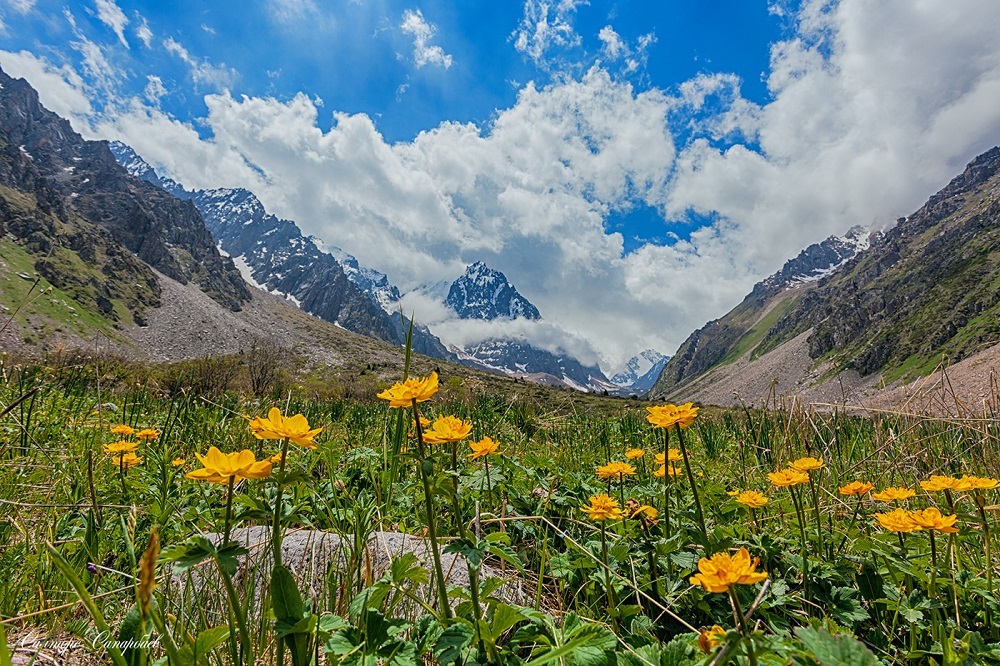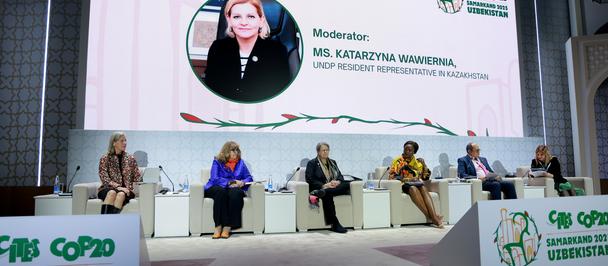Biodiversity in Kazakhstan
BIODIVERSITY IN KAZAKHSTAN
Kazakhstan is endowed with an enormous diversity of mountain ecological systems and a great diversity of species. The country is particularly known for its very high rate of mushroom endemism; more than 120 of its over 5000 species of mushrooms are endemic. Kazakhstan is also known for its very rich fossil flora and fauna, some of which are among the oldest and date back to about 420 million years. More than five percent of the country’s land surface is under protected area.
BIODIVERSITY AND ECOSYSTEM SERVICES NETWORK OF KAZAKHSTAN
In view of the strong leadership of Kazakhstan to convey the Trialogue’s themes and promote the uptake of relevant IPBES thematic assessment messages on protecting pollinators and combatting land degradation at national and regional levels, the country was selected as a priority target country for BES-Net II Component. Catalytic financial support, or BES Solution Fund, of US$395 450 was allocated for a three-year period (2020-2022) to help accelerate and upscale the harmonized implementation of the Central Asia Regional Trialogue Action Plan and other emerging priority activities by policy, science, and practice communities.
Other documents include the Strategy of Kazakhstan 2050, the National Policy for Development, the Concept of Innovation for the Development of Kazakhstan, and the Concept of Transition to Green Economy, etc. However, these documents cannot support the effective implementation of the intergovernmental Panel for Biodiversity and Ecosystem Services (IPBES) because they have no proper IPBES legal framework with provisions for traditional knowledge and involvement of local communities.
Kazakhstan’s biodiversity is constantly under threat from habitat destruction due to urbanization and the extraction of mineral resources, poaching, hunting, pollution, and unsustainable agricultural practices. Rare hoofed animal populations, and many other species, have continued to decrease despite improved protection practices.
CURRENT UNDP-GEF ABS PROJECT ACTIVITIES
The BES-Net project, in Kazakhstan, promotes dialogue and cooperation between science, policy, and practice communities for effective biodiversity and ecosystem services (BES) management, contributing to long-term human well-being and sustainable development.
The project is supporting awareness-raising and training activities to bring together BES-Net’s three target communities of science, policy, and practice for face-to-face dialogues around the themes of the completed IPBES Thematic Assessments, particularly on pollinators/pollination and land degradation/restoration. Fostering mutual learning, inter-cultural understanding, and interinstitutional coordination on specific policy-relevant questions at the national and regional levels. It also strengthens the interface between these communities and enhances national capacity to integrate scientific findings of the IPBES assessments into policy, decision-making, and on-the-ground practices
IN-COUNTRY PROJECT PARTNERS |
Principal Partner |
Committee on forestry and Wildlife under the Ministry of Ecology, Geology and Natural Resources of the Republic of Kazakhstan |
Institute of Ecology and Sustainable Development |
Beekeepers Union Bal-Ara and the Association of Nuts and Berries Producers from Kazakhstan |
Other Partners |
Institute of Botany and Phyto introduction. |

 Locations
Locations




